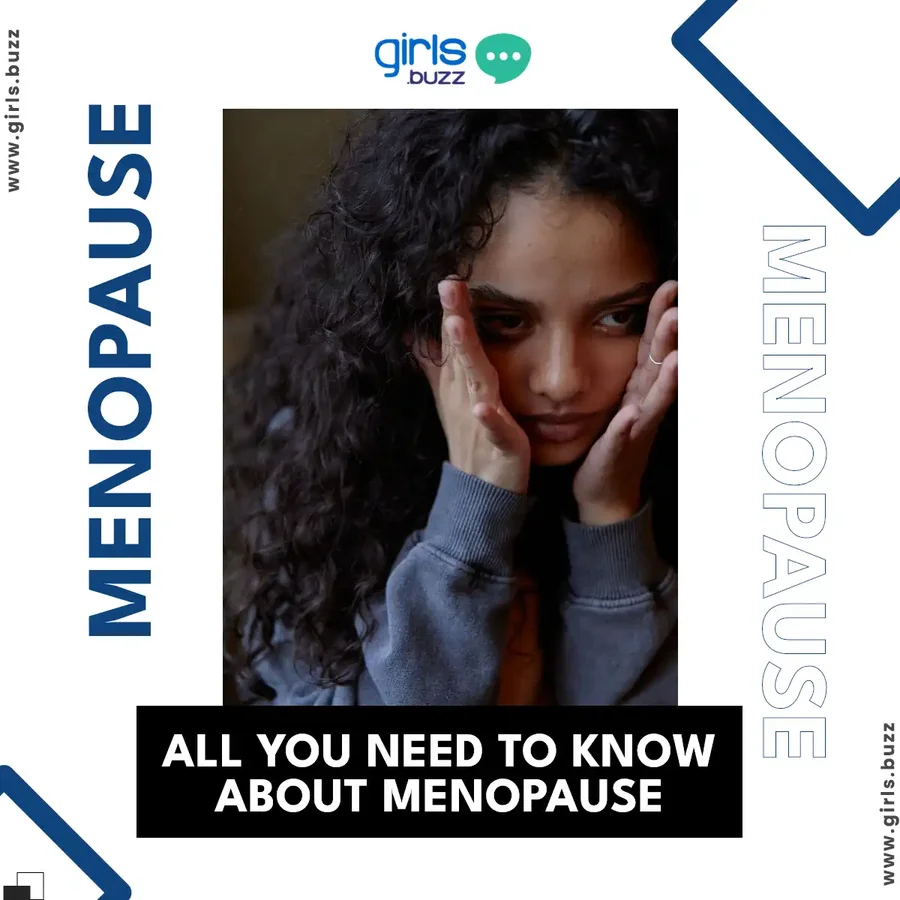Everything You Need To Know About Menopause
4 minuteRead

Menopause is a natural biological process in a woman’s body that indicates the end of her reproductive cycle. It happens when a woman's ovaries stop producing eggs and her menstrual cycle stops permanently. Menopause usually takes place between the ages of 40 and 50, but it can occur before or after the mentioned age range depending upon various factors. Menopause is a biological process which comes with a wide range of physical and emotional changes in a body that can be challenging for a few women. These effects can vary from woman to woman depending on their body intensity and working mechanism. So, if you are someone who is about to reach their menopause age or has already started, you have landed at the right place. Let’s explore some of the symptoms of menopause and some ways you can adapt to ease the discomfort caused by these symptoms!
Source: guajardomd
Menopause Symptoms:
Hot flashes and night sweats:
Hot flashes are sudden feelings of warmth that can cause sweating and skin flushing, while night sweats are hot flashes that occur during sleep. These flashes are very common when you are about to hit your age of menopause. Hot flashes can also include sweating and red patches on different parts of your body. This is completely normal and you don’t have to worry about it.
Source: cwcobgyn
Vaginal dryness and discomfort:
Vaginal dryness, itching and discomfort can be a few of the early signs of menopause. As estrogen levels decline, the tissues in the vagina can become dry and thin, leading to discomfort during sexual activity.
Mood changes:
Many women experience mood changes during menopause, such as irritability, anxiety, and depression. Signs of anxiety and depression can also be seen in women in their premenopause and menopause ages. The reasons can include the thought of your reproductive age coming to an end, sleepless nights or even low libido.
Sleep disturbances:
Menopause can cause insomnia, night sweats, and other sleep disturbances, leading to fatigue and irritability. This can also be one of the reasons for anxiety and depression.
Changes in sexual desire:
Some women experience a decrease in sexual desire during menopause, while others experience an increase. Low libido is one of the most common signs seen during menopause.
Changes in the menstrual cycle:
Missing your periods or irregularity in your menstrual cycle can be the earliest sign of menopause. The reason is that the ovaries will stop producing eggs regularly, leading to irregularity and eventually permanent stopping of the menstrual cycle.
Managing Menopause Symptoms
Hot flashes and night sweats:
Dress in layers so you can easily remove clothing if you become too warm. Avoid spicy foods, alcohol, and caffeine, as these can trigger hot flashes.
Vaginal dryness and discomfort:
Use a water-based lubricant during sexual activity to reduce discomfort. Hormone replacement therapy (HRT) can also help alleviate vaginal dryness. Talk to your partner about the discomfort caused during sexual activities and find ways and solutions to deal with it.
Mood changes:
Exercise regularly, get enough sleep, and practice stress-reducing techniques such as meditation or yoga. Talk to a friend or your loved ones who have gone through the same already and take some advice on how they managed these symptoms.
Sleep disturbances:
Stick to a regular sleep schedule, avoid caffeine and alcohol before bedtime, and make sure your bedroom is cool and dark. These tips can help with insomnia and sleepless nights.
Changes in sexual desire:
Talk to your partner about your changing needs and desires. Consider exploring new ways to be intimate that might not involve intercourse.
Write, Record and Answer! Consume Unlimited Content! All you need to do is sign in and its absolutely free!
Continue with one click!!By signing up, you agree to our Terms and Conditions and Privacy Policy.














